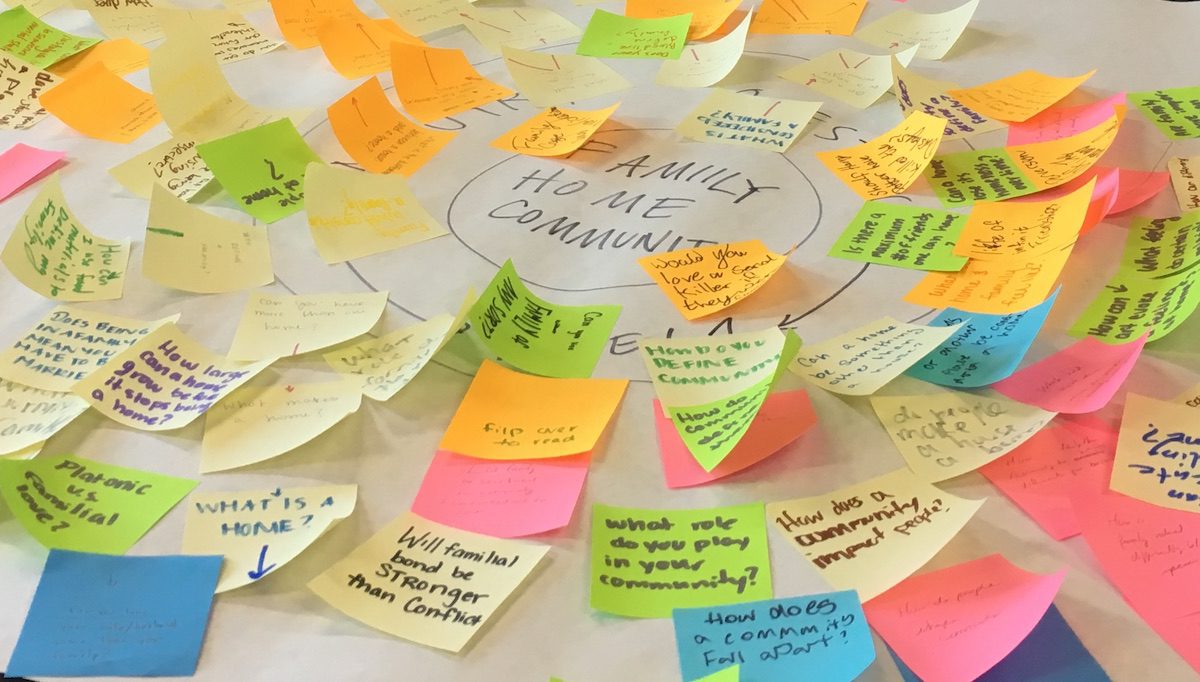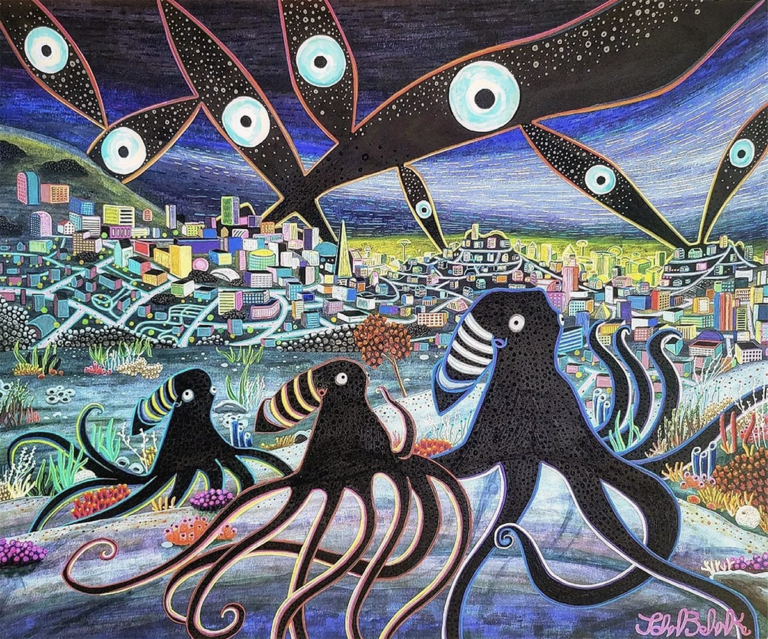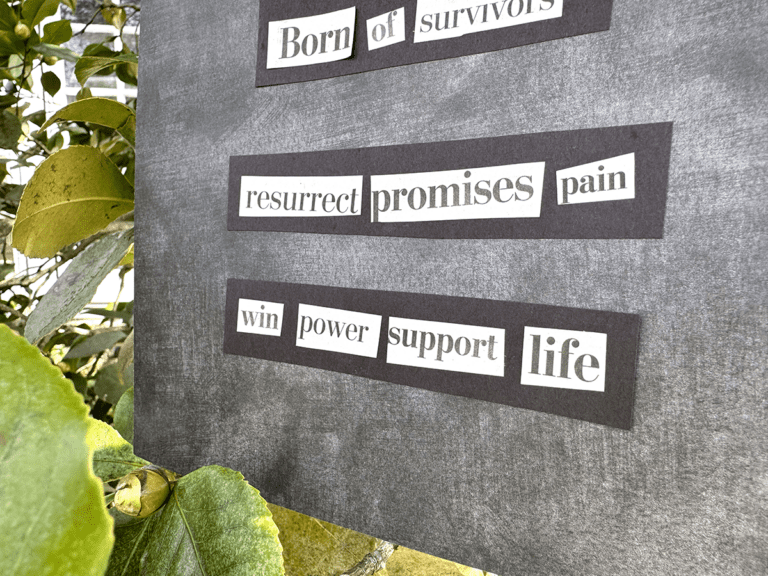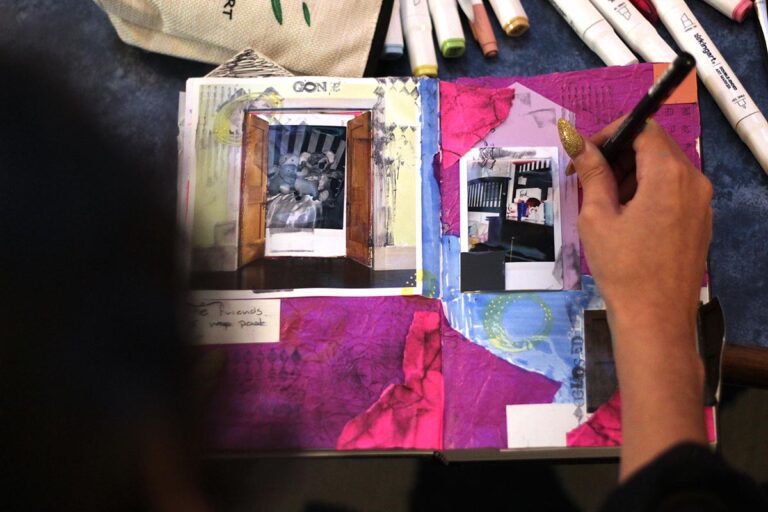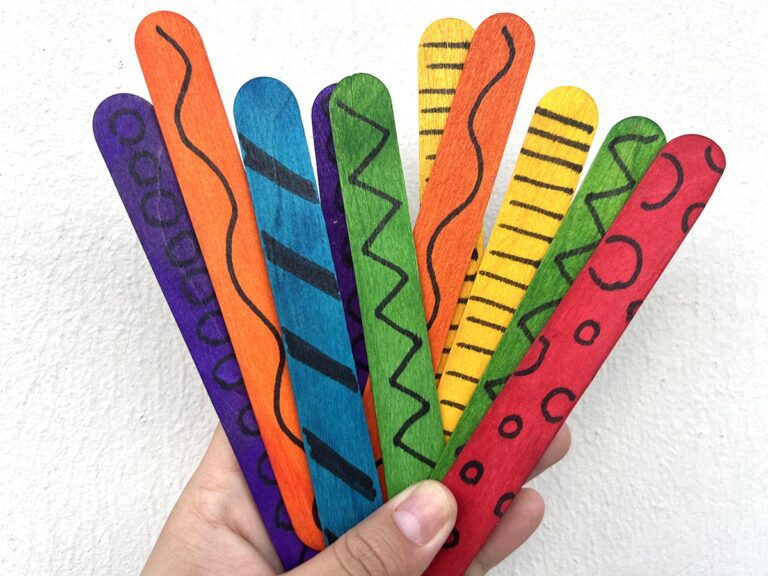As a high school teacher, the new shift in inquiry investigation in the AP Art and Design curriculum has me wondering two things: “How can we generate an inquiry question?” and “How can we help support our students to dive below the surface?” For all art teachers, it is a constant challenge to encourage all students to exercise “outside the box thinking.” We cannot just tell students to “come up with a creative question.” We can present brainstorming opportunities and support their process. Mind-mapping, also called concept mapping, is a great way to get the creative juices flowing. Use this spin-off from the traditional mind-map exercise, help your students generate a large number of questions in a short amount of time and pursue both depth and specificity.
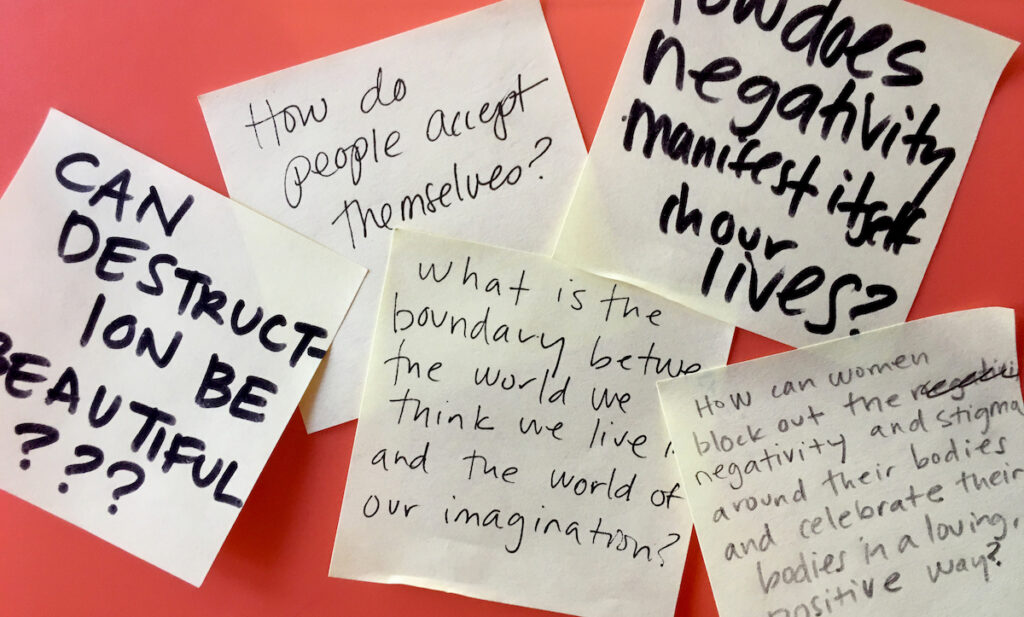
Length of time: 1 – 2 class periods
What you will need:
- Roll of butcher paper or other large paper (could be done on a whiteboard too!)
- Sticky notes
- Markers
- Pens
- Pencils
The Prep:
- Cut four to six large sheets (about 4-6′ long) of butcher paper. You could lay them over several table groupings or hang them on the walls of your room or hallway.
- Create three large concentric circles in the middle of each paper. Inside the innermost circle (LEVEL 1), provide a broad or generic topic such as global warming, identity, or nature. You could also leave them blank and ask your class to fill them in with a topic of their choice.
- On the next circle, write “LEVEL 2: Inquiry Questions,” and in the third circle, write “LEVEL 3: Branching Inquiry Questions.”
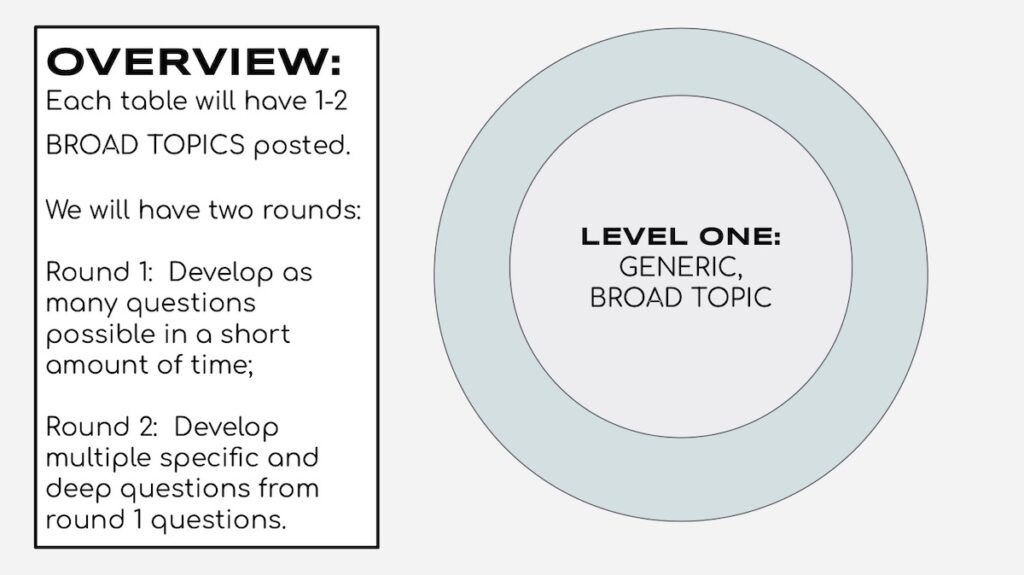
Round 1:
- Students are given ten minutes, with sticky notes in hand, to write down as many questions as they can pertaining to the topics. Students stick these notes in the “LEVEL 2” circle, making sure to move from topic to topic to keep their mind fresh.
- My class examples from the topic of identity included:
- “What makes up my identity?”
- “How do gender stereotypes impact my identity?”
- “How does my combined culture define who I am?”
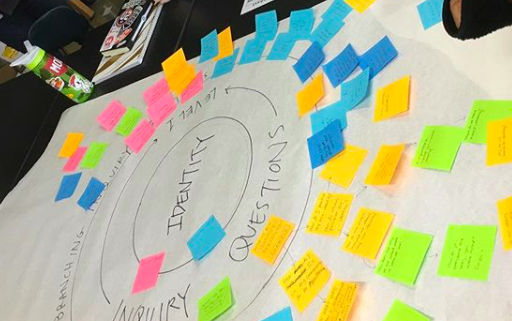
Round 2:
- Students are given ten to fifteen minutes to walk around and review what others have written in round one. Students use their sticky notes to branch out on round one inquiry questions with related, but more expanded and specific, inquiry questions.

Examples from that same topic of identity included:
- “What makes up my identity?” became “How do my parents’ ideals of who I should be, impact who I have become?”
- “How do gender stereotypes impact my identity?” developed into “How can fluid gender expression demonstrate the continuum of masculinity?”
- “How does my combined culture define who I am?” became “How can I represent my journey to reconnect with my culture?”
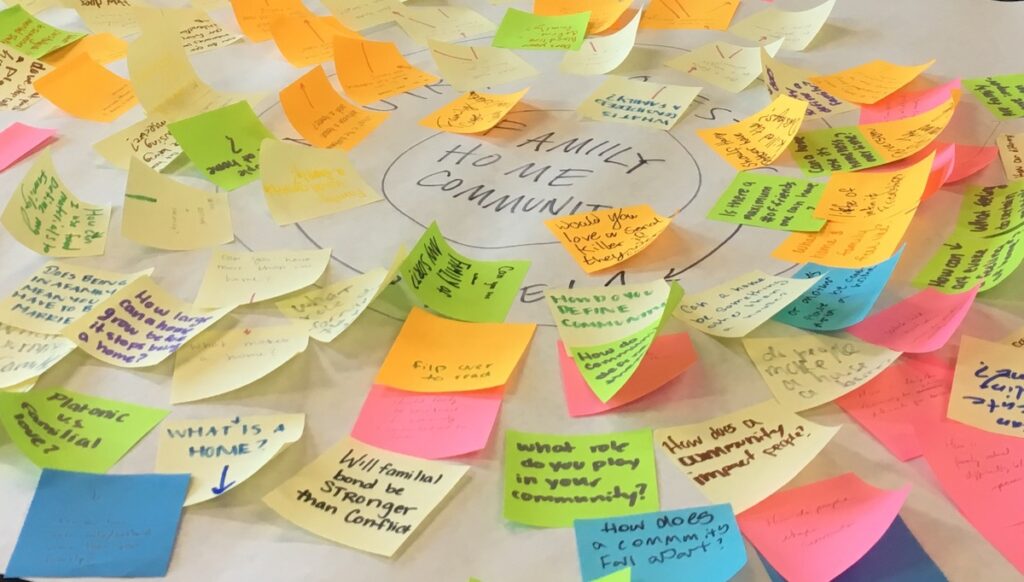
The wrap-up:
- At the end of the exercise, students choose one question that speaks to them to share out. Collect all the stickies and create a large document for students to reference later (and add to each year) if they get stuck when coming up with an inquiry question for their artwork.
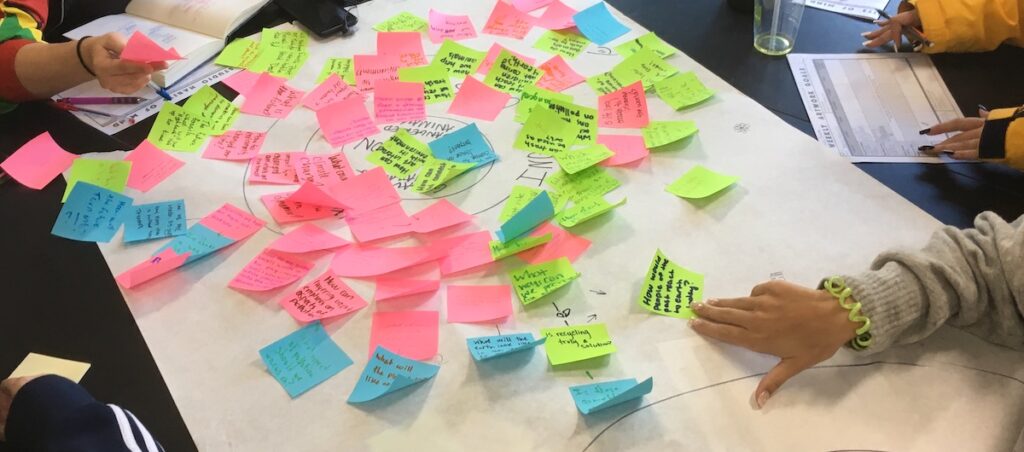
Spending time developing deep and meaningful inquiry questions will help your students get started in the right direction. Whether they struggle with creating depth and substance in their work or are overwhelmed with idea generation, don’t worry! Even if students begin their first few artworks with a more simplistic or general idea, their work will continue to develop over time when focusing on connecting their process and media back to their inquiry. As they continue their investigation, their inquiry will continue to sharpen and clarify into a meaningful response to their body of work.
What exercises do you use to generate inquiry questions?
What strategies have you found helpful to develop deep thinking?
Magazine articles and podcasts are opinions of professional education contributors and do not necessarily represent the position of the Art of Education University (AOEU) or its academic offerings. Contributors use terms in the way they are most often talked about in the scope of their educational experiences.
